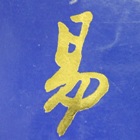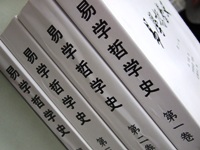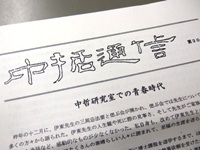Profile
- Research Subject
A study of the thought of the China ancient times based on excavational discovery of early Chinese manuscripts.
- Research Fields
- Chinese philosophy, A history of philosophical theories of <i>Zhou-yi</i>
- Faculty - Division / Research Group / Laboratory
- Division of Humanities / Research Group of Cultural Representations / Laboratory of Sinology
- Graduate School - Division / Department / Laboratory
- Division of Humanities / Department of Cultural Representations / Laboratory of Sinology
- School - Course / Laboratory
- Division of Humanities and Human Sciences / Course of Linguistics and Literature / Laboratory of Sinology
- Contact
Office/Lab: 426
TEL: +81-11-706-3018
Email: kondohy(at)let.hokudai.ac.jp
Replace “(at)” with “@” when sending email.Foreign exchange students who want to be research students (including Japanese residents) should apply for the designated period in accordance with the “Research Student Application Guidelines”. Even if you send an email directly to the staff, there is no reply.- Related Links
Lab.letters


It took eight years for a Japanese translation of voluminous books on the art of divination to be completed, through the concerted efforts of a number of researchers who took over the undertaking from the former project leader.
In the Hellenistic period, when ancient Greece philosophy matured, various schools, as typified by the Stoic school, engaged in fierce competition, pursuing heated discussions. Do humans have free will in the face of fatalism, a philosophical doctrine that stresses the subjugation of all events and actions to fate? I strive to reconsider such questions that ancient philosophers addressed from a contemporary perspective and through the interpretation of literature. Eki (augury) is familiar in Japan as uraniai(fortune-telling), whereas in China, it’s written in religious scriptures that are valued most as a principle behind everything, including a vision of the universe, thought and learning. Research on the art of divination at Hokkaido University counts as the greatest achievement in this field in Japan. In the spring of 2009, a Japanese translation of Ekigaku Tetsugakushi written by Zhu Bo-Kun, an expert in divination research, was published (2,068 pages in 4 volumes). After Professor Tomoatsu Ito, who played a leading role in promoting this grand project, passed away, I was one of 37 researchers who took over his undertaking, and we were able to complete the project in eight years. All those involved in this project pride themselves on the voluminous Japanese translation created by dint of an academic bond that could only have been forged at Hokkaido University as a result of concerted efforts by the researchers.
A conspiracy concocted by Su Qin: Would it go that far?
A new image looming out of the <i>kanbun</i> (Chinese classics)
I was astonished by Su Qin, a member of the School of Diplomacy in ancient China (a professional diplomatic negotiator, or a so-called international spy), whom I have casually chosen as a topic for my lectures. His behavior as described in Sengoku Juoka Sho (Records of the School of Diplomacy in the Period of Warring States in China) is quite mysterious. However, while collating his personal relationships with contemporaries and the geographic aspects of China in those days, as well as chronologically arranging incidents he was involved in, I noticed an astonishing image looming out of the book. The single truth that he persisted among a tissue of lies full of policies and plots began to emerge. It was a revelation.
The source of such an inquisitive mind stems just from a lasting interest in your research subject. Let’s relish dynamic, exciting moments in which a new image of a research subject is discovered from Chinese classics in which one mustn’t neglect even a single word.
Message
Perusing Chinese literature enables you to rapidly expand your horizons beyond time and space. It does not always follow that certain accounts are historically true because they were written in famous history books. What made us glaringly realize that we can no longer allow ourselves to blindly accept the accounts in Shiji (the Chinese Historical Records) was the ancient manuscripts (Zhanguo-Zonghengjiashu), which were discovered from the third grave of Mǎwángduī in the Han dynasty in 1973 in Changsha City, Hunan Province, especially the historical documents delineating letters and discourse concerning Su Qin covered from Chapter 1 to 14 in the manuscripts (with only Chapter 5 overlapping with Shiji). They simply suggest that there may be a history that differs from that described in Shiji.
However, the image of Su Qin looming from the documents can be interpreted as follows: An ordinary diplomat, who conceives a desperate large-scale operation via a great change in thinking, producing a final outcome that turns the world upside down, looks like a hero from a great action movie. I assume that people in the Han dynasty also enjoyed different stories like this of his that were not covered in Shiji. Such documents are brimming with history as well as the pleasures of literature and thoughts.
Su Qin said to the king of the Yan dynasty, “Humanity and justice are deeds directed for your own sake, not for the sake of others. In other words, they are skills for complacency, not for initiative spirit. I am a man of initiative spirit. I do not intend to serve the monarch without any volition to accomplish something.” I do not want to teach anything to those without initiative spirit. I look forward to those with motivation knocking on the door of my laboratory.




